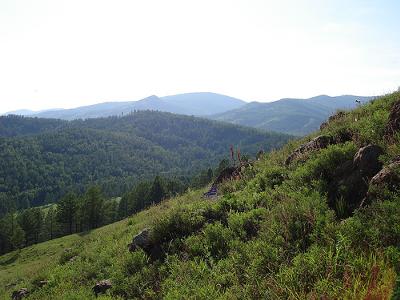My Mum always used to say that things have changed far too much. She was born in 1925, so she did see some dramatic changes in her life time.
Most of those changes have been positive, but the explosion of the world’s population from an estimated 2 billion in 1925 to an estimated 7 billion plus now, has had a profound effect on the demand for the world’s resources and, in turn, on groups who have traditionally lived their lives much like their ancestors.
One such people are the reindeer herders, known as the Tsaschin, or Dukha, who for thousands of years, have roamed the taiga of northern Mongolia, a wilderness of mountains, forest, rock and ice which straddles the country’s border with Siberia. The herders rely on their animals for hunting and transportation, and for the staples of their diet: milk, cheese, yogurt and dried milk curds.
For months on end they move around, looking for fresh pastures for their reindeer, hunting and camping on open ground, relying on their dogs to alert them of wolves. They do go in to town, to buy flour, bullets and salt. Apparently reindeer love salt and the Tsaschin round up their herd by rustling an empty salt packet.
Their way of life is increasingly under threat and the Tsaschin’s herds have fallen from more than 2,000 in the 1970s to less than one-third of that today. The reasons for this are manifold, from the lack of interest from the Tsaschin young, exposed as they are to the relentless advance of modern technology to the refusal of the Mongolian government to allow the import of of reindeer from Siberia, Canada or Scandinavia to address the inevitable consequences of inbreeding amongst the Tsaschin herds, which has meant a weakening of the overall health of the stock.
But there’s another more depressingly inevitable factor that will probably end the Tsaschin’s nomadic way of life, man’s insatiable appetite to strip the earth of it’s natural resources. Like all nomadic people, the Tsaschin roam great areas, but they have no recognisable rights to the land they’ve used for thousands of years and now the mining companies have moved in to the taiga. Mongolia is rich in copper, gold and coal and is home to one of the 10 largest copper mines in the world and the advance of these operations is denying the Tsaschin access to land they once called their own.
The fate of all nomadic peoples is precarious, as the march of technology and the demand for raw materials continues, and it looks inevitable that a way of life that has existed for millenia will slowly die. It’s hard not to feel empathy for them, after all, we were all nomads once.
The programme on BBC Radio 4 that inspired me to find out more http://www.bbc.co.uk/programmes/b01knbgg
Further reading: http://www.homelands.org/worlds/mongolia.html
